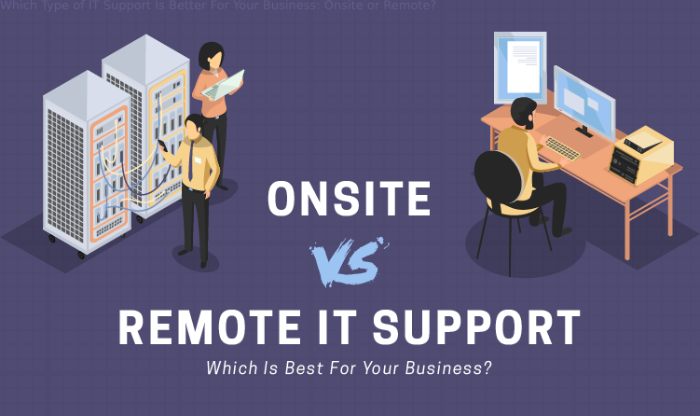Examples of coworker retaliation: Many employees are afraid to file a complaint against their employer for fear of retaliation. Workplace retaliation occurs when an employer punishes or otherwise disciplines an employee for taking an action protected by the Equal Employment Opportunity Commission (EEOC).
These protected actions may occur when an employee files a complaint or lawsuit against an employer, resists a supervisor’s sexual advances, files a discrimination complaint, and more. If the employer responds with negative measures against the employee who spoke out, retaliation can be expected.
According to the EEOC, the standard for proving whether an action was retaliatory requires “demonstration that the manager’s action could deter a reasonable person from objecting to the discrimination or from participating in the EEOC’s complaint process “. The goal of retaliation laws, then, is to ensure that employees actually speak up when they are treated unfairly, rather than worrying about the consequences. (Examples of coworker retaliation)
Best Examples of Coworker Retaliation
Retaliation can be subtle or obvious. However, any adverse action by an employer serious enough to deter a reasonable employee from exercising his or her legal rights is likely to warrant a retaliatory lawsuit. Any adverse change in working conditions could be considered retaliation.
Here are ten ways retaliation can occur when an employee exercises legally protected rights to highlight, among other things, workplace safety or public health concerns, prohibited discrimination, and failure to comply with federal and state employment laws and the environment.
Degradation:
Any decision by the employer to lower your status, limit your responsibilities, limit seniority privileges associated with your position, or reduce your salary, commission, or bonus may constitute evidence of retaliation. Any reduction in hourly wages, commission payments, paid vacation time, sick or medical leave under the Family and Medical Leave Act, or overtime opportunities may also be an indication of retaliation.
Passed over for promotion or raise:
Another common form of retaliation is the denial of a promotion or the granting of a raise or bonus when the employee clearly deserves the recognition and is refused because he or she is exercising his or her legal right to complain about conditions. work or activities of the employer.
Denied opportunities:
If an employer refuses to pay training allowances, stops funding participation in conferences and seminars, or suddenly stops paying travel expenses or membership in a professional or professional organization after an employee has filed a complaint about working conditions, it may retaliatory measures occur. Employers may attempt to disguise their intentions by citing financial reasons to reduce benefits and opportunities, but the facts prior to an investigation or civil lawsuit may reveal the true motivations.
Excessive Micromanagement:
Suddenly your work is being scrutinized or revised by a hostile boss who looks for mistakes and missteps and constantly pressures you to move faster, change direction, or take away your authority to act independently. This is retaliation if it follows a legally sanctioned complaint.
Salary cuts or loss of hours:
A form of retaliation may also include a pay cut, loss of regular work hours, or loss of a preferred shift to fulfill family or childcare responsibilities. These changes can sometimes be quite subtle and surrounded by seemingly reasonable justifications that only serve as a cover for retaliation.
Exclusion:
Sometimes, feeling harassed results from colleagues intentionally excluding you from meetings, training, or social events at work, especially if these exclusions are sudden and they remain silent in your presence without explanation. (Examples of coworker retaliation)
Reassignment:
Other forms of retaliation include shifting your regular duties to other employees or changing your schedule to cause undue hardship. Loss of workplace accommodations to care for family members or children, loss of regular work hours, or sudden assignment to less favorable work shifts that impose an unreasonable burden on you are also actions of retaliation. Therefore, retaliation includes assigning mandatory weekend or night shifts, shortening or increasing the length of shifts, or constantly changing shift schedules to prevent you from making long-term plans.
Bullying or harassment:
Sometimes employers rely on other employees to express their displeasure with your complaints and encourage others to bully or harass you in the workplace. Therefore, these actions can be humiliating and demoralizing because they isolate you from your colleagues.
Excessively negative evaluations of job performance:
After years of positive reviews and job promotions, an employer addresses an employee who has complained about some form of discrimination or illegality in the workplace by changing tone and content job performance evaluations.
Completion:
The ultimate form of retaliation is termination, loss of wages and welfare, loss of status, and a stain on your employment record. Termination may be implied or constructive. A true termination is simply a termination. However, constructive dismissal occurs when your employer subjects you to unreasonable working conditions in order to get you to resign. Over time, your employer may reprimand you for trivial incidents, regularly write negative job evaluations, or engage in a scheme to humiliate you at work among your colleagues and threaten to fire you if you don’t resign. The pressure becomes so great that it forces you to resign, which one could consider a constructive dismissal.
ALSO READ: The 3 Best Digital Healthcare Apps for Patients
What common activities can lead to workplace retaliation?
Generally, federal and state laws protect an employee from retaliation for exercising certain rights. Here are some examples of protected employee activities that should receive protection to promote compliance with a range of laws. You have the right:
Report sexual harassment and all forms of discrimination in the workplace, including discrimination based on race, gender, national origin, religion, disability & sexual orientation.
- Request religious or disability accommodations
- Report suspected violations of the law to the police or other government authorities
- Filing a Workers’ Compensation Claim
- Be a witness in a lawsuit against your employer
- Report discrimination or harassment to a supervisor or manager in accordance with an employee handbook
- Resist sexual advances from a colleague or superior
- Refuse to engage in discriminatory acts in the workplace
- Take legally authorized leave
- File a good faith complaint with the EEOC or labor commissioner
- Research salaries to uncover discriminatory salaries and benefits
- Participate in certain political activities
- Participate in certain workplace organization activities
- Questioning an employer’s immigration policy
ALSO READ: How to Optimize Your Lifestyle with Advantages of Home Automation
ALSO READ: The Future of AI-driven development: AI Integration



